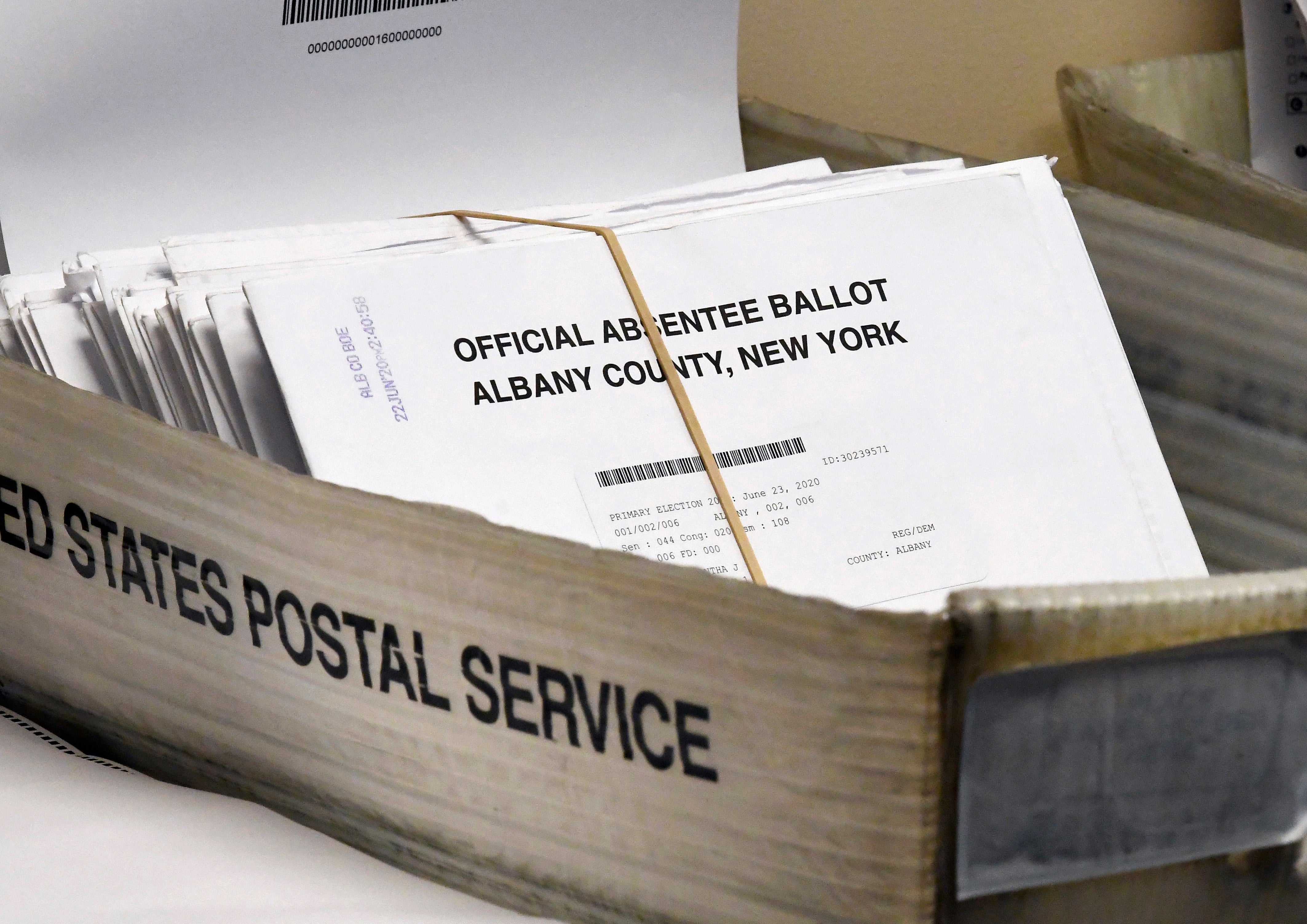Republican challenge to New York's mail voting expansion reaches state's highest court
New York’s highest court has heard arguments in a Republican-led challenge of a law that allows any registered voter to cast a mail-in ballot during the early voting period

New York’s highest court heard arguments Tuesday in a Republican challenge of a law that allows any registered voter to cast a mail-in ballot during the early voting period.
The case, which is led by Rep. Elise Stefanik and includes other lawmakers and the Republican National Committee, is part of a widespread GOP effort to tighten voting rules after the 2020 election.
Democrats approved the mail voting expansion law last year. The Republican challenge argues that it violates voting provisions in the state Constitution.
The hourlong arguments before the New York Court of Appeals in Albany hinged on technical readings of the Constitution, specifically whether certain passages would allow for the state Legislature to expand mail voting access.
At certain points in the hearing, judges quizzed attorneys on whether a constitutional provision that says eligible voters are entitled to vote “at every election” would mean a physical polling place or simply the election in general.
Michael Y. Hawrylchak, an attorney representing the Republicans, said that provision “presupposes a physical place” for in-person voting. Deputy Solicitor General Jeffrey W. Lang, who is representing the state, said the phrase “just refers to a process of selecting an office holder” and not any physical polling place.
Democrats first tried to expand mail voting through a constitutional amendment in 2021, but voters rejected the proposal after a campaign from conservatives who said it would lead to voter fraud.
Lower courts have dismissed the Republican lawsuit in decisions that said the Legislature has the constitutional authority to make rules on voting and the Constitution doesn't require voting specifically to occur in person on election day.
It is unclear when the Court of Appeals will rule.
Bookmark popover
Removed from bookmarks